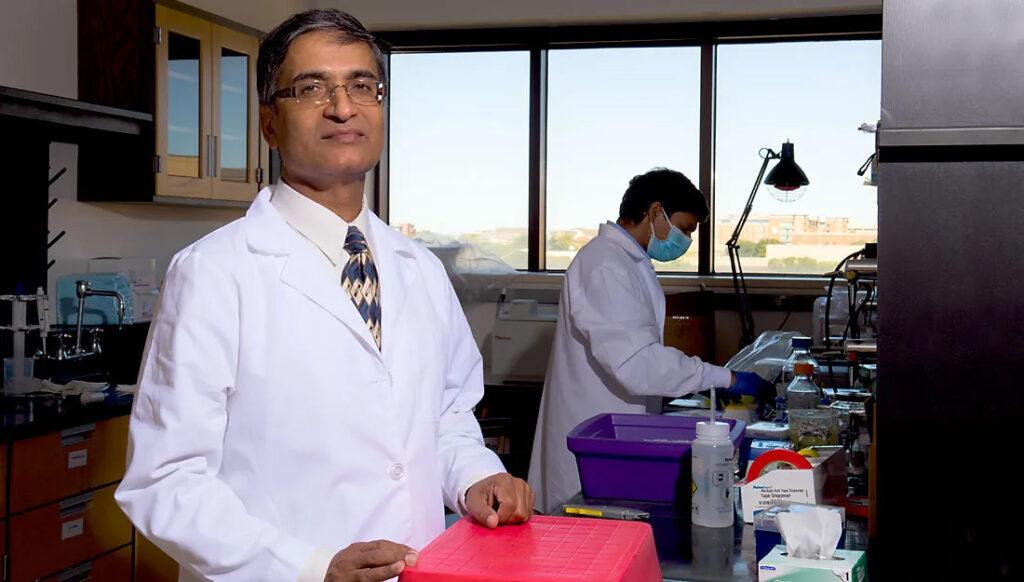3D-printed children’s medication honored with Fast Company 2025 Innovation By Design recognition
A remarkable development in the treatment of a deadly disease has earned a national honor for Texas A&M University.
Texas A&M University has been honored in Fast Company’s 2025 Innovation By Design Awards for its one-of-a-kind 3D-printed pediatric medication to treat toxoplasmosis. The recognition places Texas A&M among a select group of innovators whose work is shaping the future.
The award celebrates excellence in design across industries, and Texas A&M’s entry stood out for its new approach to addressing a critical gap in pediatric treatment. Joining A&M in the “honorable mentions” category are eBay, Best Buy, Mattel, Cisco and L’Oréal.
Texas A&M will be formally recognized during the 2025 Fast Company Innovation Festival in New York City. Dr. Mansoor Khan, developer of the 3D-printed medication, will appear on the Innovation Festival stage Sept. 18 and take part in a discussion titled, “Leaping to New Heights: The Unparalleled Progress in Healthcare.” The festival brings together thousands of business leaders, creators and changemakers for four days of presentations, networking and celebrations of innovation.

Dr. Mansoor A. Khan
The 3D-printed medication was developed by a research team led by Khan, Regents Professor of pharmaceutical sciences and dean of the Texas A&M Irma Lerma Rangel College of Pharmacy, who will be on stage at the Fast Company event to receive the award. The innovation offers a dose-flexible, child-friendly alternative to the expensive and often unsuitable adult tablets currently used to treat toxoplasmosis in children.
Toxoplasmosis, caused by the parasite Toxoplasma gondii, is the leading cause of foodborne deaths in the United States. It poses a particularly severe threat to fetuses and newborns, potentially leading to hydrocephalus, blindness, deafness, seizures and intellectual disabilities. Each year, an estimated 4,400 babies in the U.S. are born with the infection.
Until now, pediatric patients have had to rely on compounded adult medications, which are not only costly — a standard treatment costs around $790 per tablet — but also lack the necessary quality controls for pediatric use. “Such products may have questionable quality as they are not evaluated for content, stability and bioavailability,” said Khan, a nationally recognized pharmaceutical scientist.
The Texas A&M team’s solution uses 3D-printing technology to produce tablets tailored to the changing weight and dosage needs of children. These tablets are being created at the Reynolds Medical Sciences Building on the College Station campus and are undergoing rigorous evaluation. The long-term goal is to deploy 3D-printing machines in hospitals to produce medications on-site, offering a scalable and cost-effective solution for pediatric care.
The project is supported by a $3.1 million grant from the National Institutes of Health and the Eunice Kennedy Shriver National Institute of Child Health and Human Development. It includes collaborators from the College of Engineering, College of Veterinary Medicine and Biomedical Sciences and College of Arts and Sciences, underscoring A&M’s commitment to cross-campus innovation.
Fast Company’s Innovation By Design Awards are among the most sought-after design accolades in the industry, recognizing nearly 300 honorees across categories such as health, sustainability and user experience. This is the latest in a string of recent honors for A&M from Fast Company, including being named as one of the world’s Most Innovative Companies, the only university on the list. Additionally, the university’s breakthrough Alzheimer’s therapy was recognized as a World-Changing Idea.
